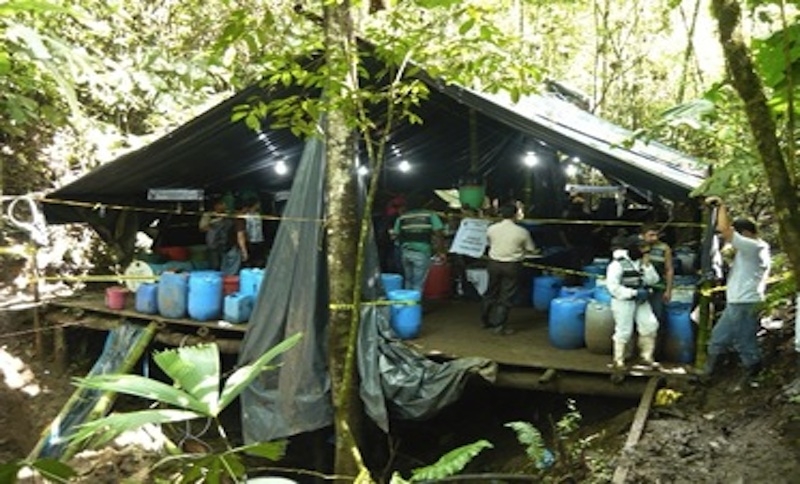Authorities in Ecuador discovered five drug processing laboratories during the first four months of 2014, indicating that despite official denials, Ecuador is playing a role in regional cocaine production.
Members of the armed forces and police discovered the labs, along with two abandoned bases, near Ecuador’s northern border with Colombia, reported La Hora. During the same period, the armed forces found close to 500 firearms, 1,364 kilograms of cocaine, 4,500 coca plants, explosives, anti-armor rockets, and over $500,000 in cash.
A former police commander called the discoveries “worrying” and said the labs meant there were still thousands of hectares of coca plants being grown along Colombia’s southern border, particularly in the department of Nariño, which borders Ecuador’s Sucumbios and Carchi provinces.
InSight Crime Analysis
Ecuador is an important transit point for cocaine trafficked from Colombia and Peru, and also has a growing domestic market. The country has seen a sharp increase in cocaine seizures in recent years, from 14.8 tons in 2010 to 53 tons by November 2013. A 2013 US State Department report estimated that 110 tons of cocaine passes through Ecuador annually.
Despite growing evidence of cocaine production, however, in October 2013 Ecuador’s Vice-minister for Internal Security stated that drugs were not processed in Ecuador.
“Our country has never been a drug producer,” he said to ECTV. “Drugs are not processed and coca leaves are not produced in our country.”
SEE ALSO: Coverage of Ecuador
The rhetoric contradicts the reality. Several cocaine labs have been found in Ecuador in recent years, including some in the northern border region. The Revolutionary Armed Forces of Colombia (FARC) reportedly maintains a presence on both sides of the border and small-scale coca cultivation in this area has been linked to them. In recent years Colombian authorities have cracked down on the FARC’s cocaine production areas, and these recent busts in Ecuador could mean the guerrilla group is moving its labs south.
Mexico’s Sinaloa Cartel and the Colombian criminal group the Urabeños are also known to operate in Ecuador and reportedly compete for control of drug trafficking routes in this region.

